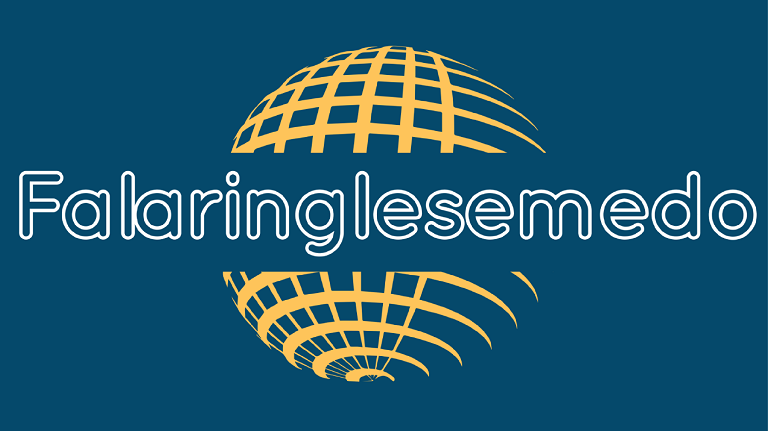O Presente Perfeito (PP) na língua inglesa é um tempo verbal considerado difícil de compreender e usar por muitos estudantes. Isso é compreensível porque não existe este tempo verbal na língua portuguesa; porém, com uma boa prática das formas de USO do PP na comunicação, podemos compreendê-lo bem e dominá-lo até a fluência. Estude cada uso demonstrado a seguir, cada exemplo, e depois crie os seus próprios modelos, de acordo com sua realidade. Você irá facilmente dominar o “PresentPerfect”. Sucesso!
The Present Perfect is a verb tense in English that is considered difficult to manage by many English students. This is understandable because there is no such tense in the Portuguese language; however, with a good practice of the USE of the PP in communication, we can understand it well and master it until fluency. You should study each USE example below and then create your own models according to your real-life experiences. You will easily master “PresentPerfect.” Go for it!
O Presente Perfeito é formado de dois elementos:
1- Verbo HAVE no presente simples: HAVE ou HAS , dependendo do sujeito do verbo (HAS = 3ª pessoa do singular = HE / SHE/ IT).
2- Verbo principal no PARTICÍPIO.
E o que é o particípio? É uma forma verbal . Existem 03 formas verbais na língua inglesa: PRESENT PARTICIPLE (verb-ING) / PAST PARTICIPLE (verb- ED, or irregular forms) / INFINITIVE (to + Verb).
Identificamos o PARTICÍPIO PASSADO (PAST PARTICIPLE) na terceira coluna do PASSADO dos verbos irregulares. Veja :
IRREGULAR VERBS | ||
INFINITIVE | SIMPLE PAST | PAST PARTICIPLE |
to break | broke | broken |
to hit | hit | hit |
to be | was/were | been |
Então, observe: I HAVE BROKEN MY TV. / SHE HAS BROKEN HER CELL PHONE. / THEY HAVE BROKEN THEIR CAR.
*********
The construction of this verb tense is made of two elements. The first element is the auxiliary verb have or has, depending on the subject of the verb it is conjugated with. The second element is the PAST PARTICIPLE of the main verb, which is usually formed by adding -ed or -d to the verb’s root (e.g., studied, played, carried ) although English does have quite a few verbs that have irregular past participles (e.g., gone, taken, had, said).
Observe these examples: I HAVE BROKEN MY TV. / SHE HAS BROKEN HER CELL PHONE. / THEY HAVE BROKEN THEIR CAR.



PRESENT PERFECT - LANGUAGE IN USE
O tempo PRESENTE PERFEITO na língua inglesa refere-se a ações que ocorreram (1) em um tempo INDEFINIDO no passado, OU (2) a ações que começaram no passado e ainda perduram até o presente
Ex1: He has finished his work = ele terminou o trabalho -quando? A que horas? Não se sabe.
Ex2: I have spent much money = Eu gastei muito dinheiro – e ainda estou gastando.
Entretanto, dentro desse cenário generalizado, há inúmeras formas de se comunicar no tempo Presente Perfeito na língua inglesa. Muitas vezes são usadas palavras chave como SINCE-FOR-JUST-ALREADY-YET-EVER-NEVER, que atuam como advérbios, preposições ou conjunções nas frases expressas no PP.
Veja cada uma delas a seguir e pratique bastante. PRÁTICA=PERFEIÇÃO=FLUÊNCIA
***********
The Present Perfect tense refers to actions that (1) occurred at an indefinite time in the past or (2) began in the past and continued to the present time. For example:
(1) He has finished his work. (when? What time? It doesn’t matter here)
(2) I have spent a lot of money. (It means that I started spending money sometime in the past, and I’m still doing it).
However, there are many ways to express ourselves in the Present Perfect tense. Keywords such as SINCE-FOR-JUST-ALREADY-YET-EVER-NEVER are often used, which act as adverbs, prepositions, or conjunctions in the phrases expressed in the PP.
See each of them below and practice a lot. PRACTICE = PERFECTION = FLUENCY
Let's Practice
SITUATION 1 – Expressing an action that happened in an indefinite time in the past- emphasis is not the time, but the action itself. We can use NEVER / EVER/ ALREADY. We can express our life experiences. For example:
1) – Have you ever been to the U.S.A? – No, I’ve never been there.
2) – Paul has been to Italy twice.
3) – She has never written a book.
4) – I have already eaten grasshoppers.
5) – How long have you been to London? – I have been here for three months.
6) – How long has he worked in that office? – Since last year.
(**1- Use o PP para expressar ações que ocorreram no passado/ experiências que alguém viveu – sem se importar com a data definida do fato. Algo que já aconteceu, ou que nunca aconteceu. Use também para perguntar o período de duração de um evento- HOW LONG HAVE YOU…)
SITUATION 2 – Expressing actions that started in the past but continue to the present. We can use SINCE/ FOR. For example:
1)- Lena has studied English for 3 years. (She is still studying English).
2) – Paul has studied French since 2019. (He is still studying in 2021)
3) – I have read this book for two hours.
4) – I haven’t written a text for my blog since last week.
ATTENTION:
FOR + a period of time ( for one month/ for 2 years/for 3 days/ etc)
SINCE + the point in time when the action started. ( since 2019/ since last year/ since two days/ since Monday/ since two o’clock/ etc.)
(** Use “FOR” para dizer por quanto tempo a pessoa sofre a ação. Por ex., “Lena estuda inglês por 3 anos”.)
(** Use “SINCE” para dizer “desde quando” a pessoa está sofrendo a ação. Por ex., “Paul estuda Francês desde 2019”.)
** É muito importante dominar essa diferença de FOR/ SINCE; é muito cobrado em provas e testes de proficiência.
SITUATION 3 – Expressing actions that happened very recently. We can use JUST. For example:
1)- We have just seen your brother on TV.
2) – They’ve just arrived home.
3) – She has just finished her work.
(** 3- Use para falar de algo que acabou de acontecer.)
SITUATION 4 – Expressing actions that happened and finished at an indefinite time in the past. We can use ALREADY. For example:
1)- Philip has already finished his homework.
2) – The kids have already eaten their lunch.
3) – I have already read this book.
(** 4- “ALREADY” = expressa ação que JÁ está concluída, não importando a hora em que terminou – é tempo indefinido).
SITUATION 5 – Expressing actions that have not yet happened. We can use YET. For example:
1) – They haven’t arrived yet.
2) – Have you visited your uncle yet?
3) – I haven’t read this article yet.
4)- Hi, guys. Have you finished your work yet?
A – I have! I’ve already finished it. (+)
B – I haven’t ! I haven’t finished it yet. (-)
(**5- Use para falar de algo que ainda não aconteceu, em oposição a algo que JÁ (ALREADY) aconteceu. Usamos YET nas frases negativas e interrogativas).

